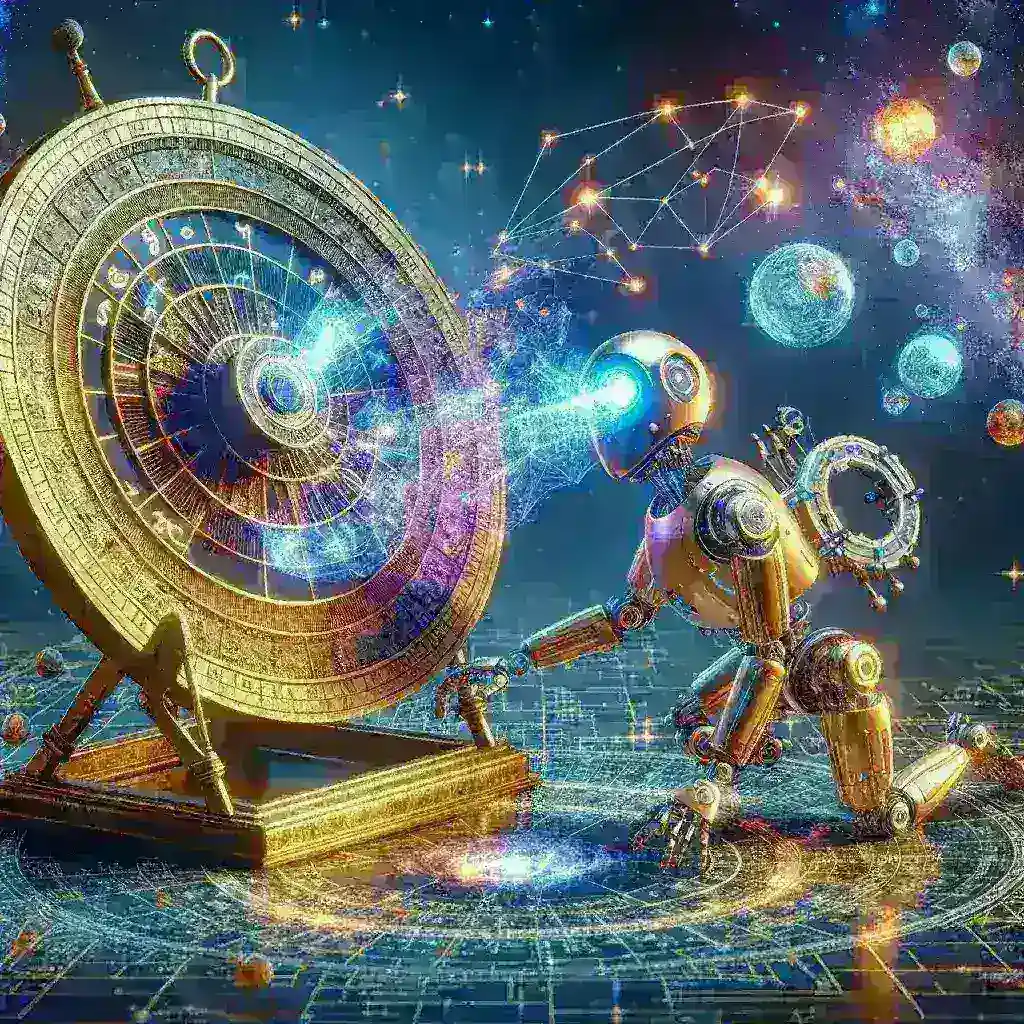Artificial Intelligence (AI) has permeated various aspects of modern life, revolutionizing industries from healthcare to finance. One of the more intriguing and controversial areas where AI is making waves is astrology. As machines become increasingly sophisticated in analyzing data and making predictions, the question arises: Can we trust AI in the realm of astrology, and what are the ethical implications of doing so?
The Intersection of AI and Astrology
Astrology, an ancient practice that interprets the positions of celestial bodies to understand human affairs and natural events, has traditionally relied on the expertise of human astrologers. However, the advent of AI has introduced a new dimension to this field. AI algorithms can process vast amounts of data, including birth charts, planetary positions, and historical events, to make predictions and provide insights.
Benefits of AI in Astrology
One of the primary benefits of AI in astrology is its ability to handle complex calculations and data analysis with speed and accuracy. Human astrologers can spend hours, even days, interpreting a single birth chart. AI, on the other hand, can generate insights in a matter of seconds. This efficiency can make astrology more accessible to a broader audience, potentially democratizing the practice.
AI can also help in identifying patterns and correlations that might be overlooked by human astrologers. By analyzing large datasets, AI can uncover trends and relationships that offer new perspectives on astrological predictions. This can lead to more nuanced and accurate readings.
Challenges and Ethical Concerns
Despite its potential benefits, the integration of AI in astrology is not without its challenges and ethical concerns. One of the primary issues is the accuracy and reliability of AI predictions. While AI can process data quickly, it is only as good as the data it is trained on. If the data is biased or incomplete, the predictions may be flawed.
Another concern is the potential loss of the human touch in astrology. Astrology is not just about data and calculations; it is also about intuition and personal connection. A human astrologer can provide context, empathy, and personalized guidance that a machine cannot. Relying solely on AI for astrological insights could lead to a loss of the human element that makes astrology meaningful to many people.
Privacy and data security are also significant concerns. When individuals provide their personal information, such as birth dates and times, for astrological readings, they trust that this data will be handled with care. AI systems must prioritize data security and privacy to maintain trust and comply with regulations.
The Role of Human Astrologers
While AI can enhance the practice of astrology, it is unlikely to replace human astrologers entirely. Human astrologers bring a depth of knowledge, experience, and emotional intelligence that AI cannot replicate. The ideal scenario may be a collaborative approach where AI and human astrologers work together to provide comprehensive and accurate readings.
Human astrologers can use AI as a tool to augment their practice, leveraging its computational power to handle complex calculations while maintaining their role as interpreters and guides. This collaboration can lead to more accurate and meaningful astrological readings that benefit both the practitioner and the client.
The Future of AI in Astrology
The future of AI in astrology is likely to be shaped by ongoing advancements in technology and ethical considerations. As AI algorithms become more sophisticated, they will be better equipped to handle the complexities of astrological data. However, it is crucial to ensure that these advancements are made with a strong ethical framework in place.
Transparency and accountability are key. AI systems used in astrology should be transparent about their data sources, methodologies, and limitations. Users should be informed about how their data is used and have control over their personal information. Ethical guidelines should be established to ensure that AI is used in a way that respects the integrity and traditions of astrology.
Ultimately, the integration of AI in astrology should aim to enhance the practice, not diminish it. By combining the strengths of AI and human expertise, we can create a more accessible, accurate, and meaningful form of astrology that benefits all.
Conclusion
The integration of AI in astrology is a fascinating and complex topic that raises important ethical questions. While AI can offer significant benefits in terms of efficiency and accuracy, it is essential to address concerns related to data accuracy, privacy, and the human element. A collaborative approach that leverages the strengths of both AI and human astrologers can lead to a more comprehensive and meaningful practice of astrology. As we navigate this evolving landscape, it is crucial to prioritize ethical considerations and ensure that AI is used in a way that respects and enhances the ancient art of astrology.



Leave a Reply